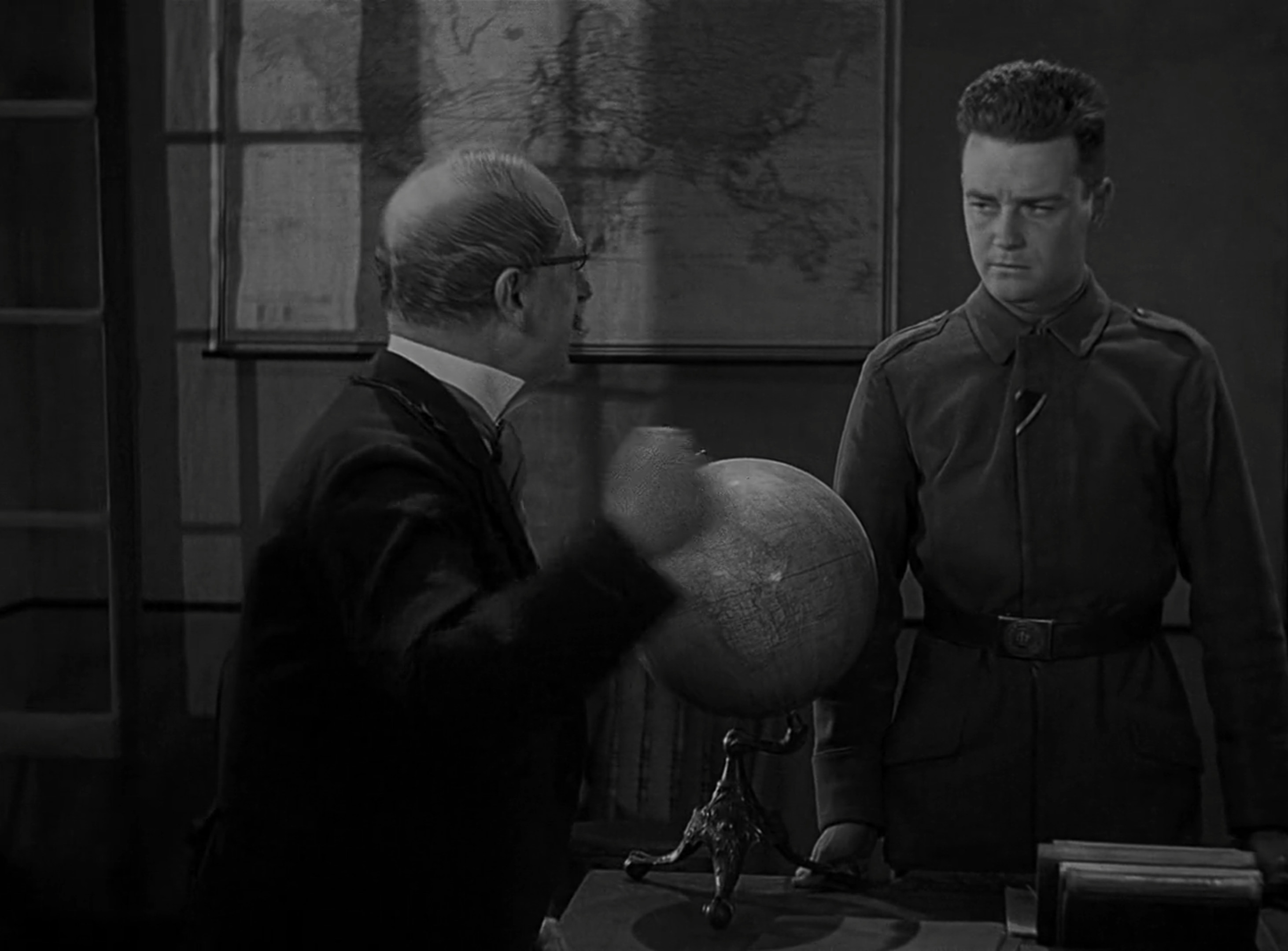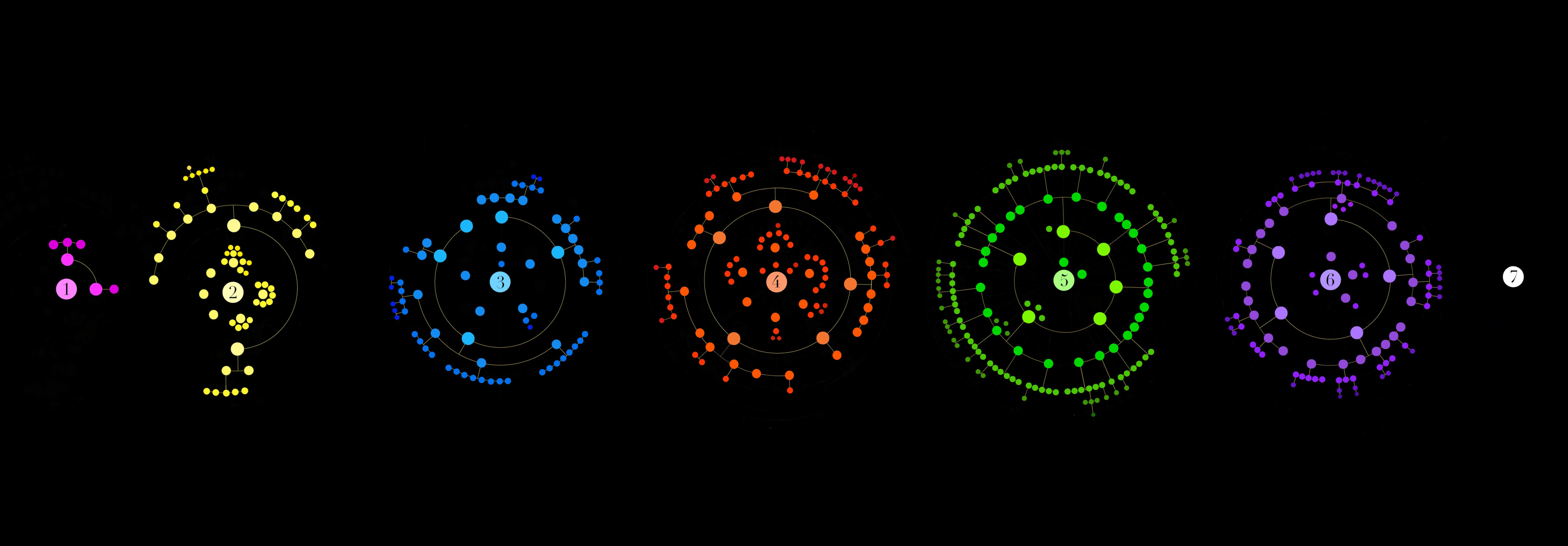Why to Read Wittgenstein’s Lecture on Ethics
The LWP's Blog · Categories: Introductions, Philosophy
Why to Read Wittgenstein’s Lecture on Ethics
By Michele Lavazza · 27 April 2025
For readers who are only just beginning to approach Wittgenstein’s philosophy, the Lecture on Ethics is a great place to start. This short introduction to the text provides some historical context and an interpretation of the relationship between the Lecture on Ethics and the Tractatus, in an attempt to shed light on the purpose of Wittgenstein’s demarcation between what can and cannot be said.
This blog post is part of a series of introductions to Ludwig Wittgenstein's individual published writings.
From the Tractatus to a lecture for the Heretics
Having finished the Tractatus Logico-Philosophicus in 1918, Wittgenstein spent the next period trying to have it published. The book’s esoteric style and sheer philosophical complexity made it difficult to find a publisher; the process of looking for one caused a great deal of stress and frustration for Wittgenstein.
After appearing in print as a poorly edited publication in F.W. Ostwald’s Annalen der Naturphilosophie, the Tractatus was eventually published to the author’s satisfaction in 1922 as a side-by-side German and English edition, translated by F.P. Ramsey under C.K. Ogden’s oversight.
In the Preface, Wittgenstein claimed that his book had once and for all given a full account of how "what can be said at all can be said clearly; and whereof one cannot speak thereof one must be silent"; and since, in it, the traditional problems of both logic and ethics had "in essentials been finally solved", its 33-year-old author retired from philosophy.
In the next few years, while Wittgenstein worked as an elementary school teacher and, after the unsuccessful ending of this experience, spent time designing his sister Margarete’s new house in Vienna and supervising its construction, the Tractatus received a significant amount of attention. In particular, it sparked lively debates among the members of the Vienna Circle and contributed to shaping some of the tenets of its logical positivism.
As summarised in its manifesto, signed by Otto Neurath, Hans Hahn, and Rudolf Carnap in August 1929, logical positivism aims to build a “unified science” where philosophy has the same epistemological status as the exact sciences and both form a coherent whole. The members of the Vienna Circle, among whom were also Moritz Schlick and Friedrich Waismann and with whom Wittgenstein had frequent contacts starting from 1927, thus attached great importance to the problem of demarcation—the question of drawing a clear and definitive distinction between what is scientific and what is not. Their solution to this problem linked the scientific status of propositions to their ability to pass the test of “logical analysis”, that is, to be reduced “to the simplest statements about the empirically given”; and it went as far as considering any proposition, including philosophical ones, which lacks such an empirical grounding as meaningless. Propositions which don’t meet the criteria for science are labelled by logical positivism as “metaphysical” and banished from the realm not only of science, but also of the new anti-metaphysical philosophy:
Clarification of the traditional philosophical problems leads us partly to unmask them as pseudo-problems, and partly to transform them into empirical problems and thereby subject them to the judgment of experimental science. (The Scientific Conception of the World, ch. 2.)
By the time Wittgenstein decided to return to philosophy and moved back to Cambridge, in 1929, he was convinced that no-one among those who had read the Tractatus had understood it. Therefore, when he was invited by Ogden to deliver a lecture for the Heretics, a Cambridge society which Ogden himself had founded, Wittgenstein took it as an opportunity to correct the most serious mistakes in the interpretation of his book. What was first printed in 1965 under the title A Lecture on Ethics is the text Wittgenstein read in front of the Heretics on 17 November 1929.
Facts and values, science and ethics
After the preamble, Wittgenstein states that he considers ethics to be the inquiry into what is good, and proceeds to draw a distinction between two ways in which we say the word "good".
In what he calls a "relative" sense, we say that something is good if it is adequate to achieve a given purpose. The same is true for terms such as "right" or "important":
If I say that it is important for me not to catch cold I mean that catching a cold produces certain describable disturbances in my life and if I say that this is the right road I mean that it’s the right road relative to a certain goal.
This relative use, Wittgenstein says, is unproblematic; but it has nothing to do with ethics. This is because it is well possible for someone to be uninterested in any specific goal, and thus in the means to achieve it: we could be mediocre tennis players and still be satisfied with how good or bad we are. But in an ethical sense, we could not say that we don’t care about what is good:
Suppose I had told one of you a preposterous lie and he came up to me and said "You’re behaving like a beast" and then I were to say "I know I behave badly, but then I don’t want to behave any better," could he then say "Ah, then that’s all right"? Certainly not; he would say "Well, you ought to want to behave better."
The word "good" is used by ethics in an absolute sense. "Good" is something that everyone should want or be ashamed of not wanting.
In this sense, however, the word "good" does not describe any state of affairs. The facts that we can depict with language, that science can describe, are neutral from the point of view of value, and can only be described as "good" or "bad" in a relative sense, that is, based on whether they aid or hinder the attainment of a goal.
When we talk about God, or indeed absolute good, we do not talk about what is or is not the case, about how things stand within the world. That something is so-and-so is relative and contingent: it is a fact. Something absolute and not contingent would be entirely independent of anything’s being so-and-so: it would not be a fact. What is independent of anything’s being so-and-so, Wittgenstein argues, is the world’s existence as a whole. When we talk about God or absolute good, one might say we talk about the fact that the world exists—which, however, is not a fact at all, because it is unthinkable for the world not to exist.
Let’s now remember what we said above: the relative sense of the word “good” is of no interest to ethics—only the absolute sense is. But then, when we talk about ethical subjects proper, our words do not make sense, because words only make sense when we describe facts. This is a very strong position, flowing from the theory of meaning laid out in the Tractatus, and it does indeed disqualify all talk of moral and religious values that philosophers and non-philosophers alike engage with in conversation and in writing. Although Wittgenstein makes no explicit reference to the Tractarian views of language and the limits between what can and cannot be said, he writes: "The tendency of all men who ever tried to write or talk Ethics or Religion was to run against the boundaries of language". And his point aligns perfectly with those made in the Tractatus when he claims that "Ethics so far as it springs from the desire to say something about the ultimate meaning of life, the absolute good, the absolute valuable, can be no science".
According to the Vienna Circle’s reading of the Tractatus, the fact that ethics can be no science felt like enough reason to dismiss it as somewhat uninteresting; more generally, the fact of being silent about what cannot be talked about was seen as a chance to let philosophy concentrate on what is truly important, that is, what can indeed be talked about. In the final remarks of the Lecture on Ethics, Wittgenstein seems to object to this very reading of his book:
These nonsensical expressions were not nonsensical because I had not yet found the correct expressions, but that their nonsensicality was their very essence. For all I wanted to do with them was just to go beyond the world and that is to say beyond significant language. [...] [What ethics says] is a document of a tendency in the human mind which I personally cannot help respecting deeply and I would not for my life ridicule it.
In a 1919 letter to Ludwig von Ficker, one of the publishers who would turn down the Tractatus, Wittgenstein had written: "My work consists of two parts: the one presented here plus all that I have not written. And it is precisely this second part that is the important one". The Lecture on Ethics helps us fully understand exactly this: when, in the closing remark of the Tractatus, Wittgenstein urged the reader to be silent whereof one cannot speak, it was not to dismiss ethical questions as unimportant; it was, on the contrary, to mark them as the most important ones and to protect them against any attempt to discuss them in the only terms they can be discussed in within scientific language, that is, as facts among facts.
Approaching Wittgenstein through the Lecture on Ethics
Why would one recommend to start reading Wittgenstein with the Lecture on Ethics?
Firstly, and trivially enough, because it is a very short and very linear text, which can be read with the same ease with which one can listen to a one-hour conference talk.
Secondly, and more substantially, because it really does put the ethos of the Tractatus in the spotlight. It makes it clear why is it that Wittgenstein is so interested in drawing a sharp distinction between meaningful and senseless language (or language and pseudo-language) but also why he insists that by drawing that distinction we only achieve very little: given that there are limits to scientific language (and those limits consist in language functioning in such a way that what it does is to depict facts), to try to speak about what transcends those limits and fail is almost more important than to speak about what falls within them. When, in the Tractatus, Wittgenstein argues for his picture theory of language and for the purging of senseless expressions from our discourse, he does not do so because only talking about facts is important, but because attempting to talk about, for example, ethics, and finding oneself unable to do so, is at least as important as talking about facts.
To the extent that reading the Lecture on Ethics encourages one to read and appreciate the Tractatus, it helps us avoid the positivistic misreading of the latter and it prevents us from considering the mysticism of the book as an oddity or the quirk of an author who set off to sketch a “scientific conception of the world” and somehow ended back up in the metaphysical swamp. The Tractatus’s emphasis on what cannot be spoken of is an essential part of the book, because for us to learn that meaningful language has limits we must first have found ourselves clashing with those limits—and our tendency to do so cannot be laughed at.
All of this, incidentally, also explains why the Lecture on Ethics is the most widely translated text available on our Ludwig Wittgenstein Project website, whose goal is, after all, to bring Wittgenstein to a wider and wider audience.
About the author
More from the LWP's blog

Happy 2026 from the Ludwig Wittgenstein Project!

Cover image: "Ludwig Wittgenstein Skjolden Norge 2024" by Vadim Chuprina, CC BY-SA 4.0





